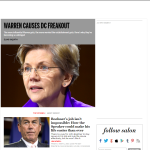A little essay-ing.
When you get right down to it, Privacy is a poor hack.
Right now, the privacy controls are out of our hands. Though we may think that editing our Facebook feed and hiding behind fake e-mails protect us, the truth is anything but. A few years ago, I was able to find my grandmother’s social security number online; she has never owned an Internet-enabled computer. On a bet, using only his first name and a cursory knowledge of his life, I was able to find a random stranger’s home address, his phone number, the phone number of his parents, and all their past residences–in 30 minutes. Our unique identifiers are spread all over the web, we can’t help it.
There is a metaphor many security experts use when dealing with the concept of privacy in the digital age. The Panopticon is a prison designed to allow a single observer to see all the prisoners, without the prisoners knowing that they are being watched.
Many professionals live in fear of the digital Panopticon, a situation in which our own information imprisons us in an Orwellian trap of monstrous proportions. With our every move tracked, we loose that sacred American right to privacy. These experts invent security codes, hashed passwords, privacy keys, and the little delete buttons next to Facebook mini-feed items. They are all subject to a shared delusion. That they are staving off the end of privacy as we know it.
The Panopticon is here. We are trapped in its prison cells. We can’t protect our information. The unending attempts to do so are distracting us from the real question, an old one.
Quis custodiet ipsos custodes? The Latin question has even more relevance now then it did for the Romans who read Juvenal’s poems. It translates to “Who will guard the guardians?” and it is one of the most important queries of the digital age. It is second only to the question: Who are the guardians?
Right now, we have deluded ourselves into thinking we are safe. But we couldn’t be more wrong. Our lives are open books to our world’s elite.
A $100 background check will reveal plenty about me, from my tendency to visit Taco Bell at two a.m. to any time I’ve been called in court. The monetary elite, both personal and corporate, can pay far more for invasive background checks that will track me to my favorite deodorant and last sent e-mail.
Our national agencies, the bureaucratic elite, have access to the machines that process my movements through the information world. The government can track my phone calls, library renewals and, with only a little bit of effort, find out more about my communications than I could possibly remember. Before I start sounding like a conspiracy theorist, here’s a number to consider: 399 billion dollars. That’s how much of your taxes went to the US Department of Defense in 2007. Almost 34 billion of that amount went to various groups marked on their budget as “Other.” In 2008, the president requested 45 billion dollars for classified intelligence operations and agencies. If our government needs to know something about you or me, it will.
Finally, the intellectual elite can also easily find the information behind identities. I’m not talking about the ivory tower, I mean black-hat hackers. Bruce Sterling, in his documentation of the hacker movement from the 60s to the 90s, The Hacker Crackdown: Law and Disorder on the Electronic Frontier, documents numerous digital intruders, including one citizen who found Bill Clinton’s credit card. Unfortunately, anything digital can be broken into with effort, time, and a big enough computer. All these years later, an ever increasing number of identity theft crimes mean that against a smart criminal, there is no real protection.
It’s time for a paradigm shift. Our information’s security is irrelevant, we need to ask how to be secure in our digital selves. We need to be able to stand in the center of our personal Panopticon and see every aspect of our many identities in complete exposure and detail. It is time to take the tools away from the elite, opt-in, and watch our watchers.
Right now we are in a weird between state, where we are forced through complicated security practices because we want to protect ourselves from the non-elite who seek to steal our identities. But this provides a false sense of security, the waitress can still steal your credit card number and your workplace can discover court settlements.
Enter the society of consensual monitoring, where the masses of information are under our control and we see what we output. Imagine a life-feed. A website where you can go to see every transaction made with your credit card as a news item, your credit rating is a widget in the corner of your screen, the government’s servers send you an alert every time your social security card is checked in the system, and you can track when people search for you in the same way that you can see a report on who is visiting a website.
What we need is permission, the same corporate and government groups that can track your identity with ease are the ones who have control over whether or not you can access it. You need to pay them to be able to see what is happening with your own identity. We have lost the ability to see our own identities.
Practically, It wouldn’t take that much to accomplish. Once we had permission, to opt-in to your identity you wouldn’t need new technology, everything we need is out there, RSS, XML, and more.
As an example, there is an increasing number of free websites that allow you to track your own identity and name as it travels through the Internet. Many of these allow you to plug in to social networks such as Facebook, which tracks friends as they go to events and take pictures, Last.fm, which tallies up what music you listen to, or Digg, which lets you mark the news stories that you read. The Spock service combines the ability to see when your name pops up on the web with feeds from other services. Friendfeed lets you track activity in your own identities while seeing what your friends are doing.
On the more professional side there are services likeLinkedIn, which allow you to put up all your professional information for potential employers and see exactly who has been looking at your profile. Annualcreditreport.com lets you get your credit report once every 12 months–for free–from the top agencies and CreditKarma.com gives you yourTransUnion credit score for free, through advertiser sponsorship. In an extremely useful move, an increasing number of banks allow access to account information via mobile phone.
The ability to opt-in to your identity could be here tomorrow, but we need to go to our government representatives and our corporate bosses and argue for it to happen. This is an all or nothing proposal, either we can all join in consensual monitoring of our identities and be truly safe or we can live in a constant scramble to try and protect the unprotectable.






























[…] and trying to do so is ethically questionable.My stance supporting transparency has long been on the record. That said, the greater my experience, the more I see that transparency can’t stand […]
Hey there just wanted to give you a brief
heads up and let you know a few of the images aren’t loading correctly.
I’m not sure why but I think its a linking issue.
I’ve tried it in two different internet browsers and both show the same outcome.
The article on using fake names for sciaol media sites was interesting because I have experience with how much you can fool people online. Several of my close friends created a fake Facebook account last year as an April Fool’s Day joke. They logged on to a friend’s account and listed her as in a relationship with this fake person, and planned to leave it at that. It grew into something more though, as many of our friends sent Jake friend requests and his name began to be thrown around in our real conversations. Many people, with very few clues to go on, began to assume they had seen him on various occasions and invented a base of knowledge about him. It was fascinating to see how three or four girls could pass themselves off as a male graduate student, using Facebook as a mask.